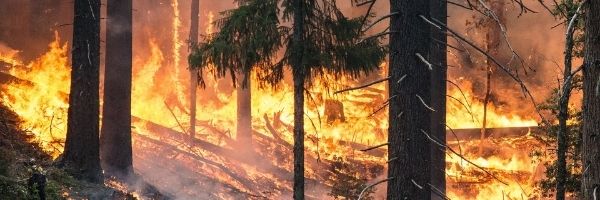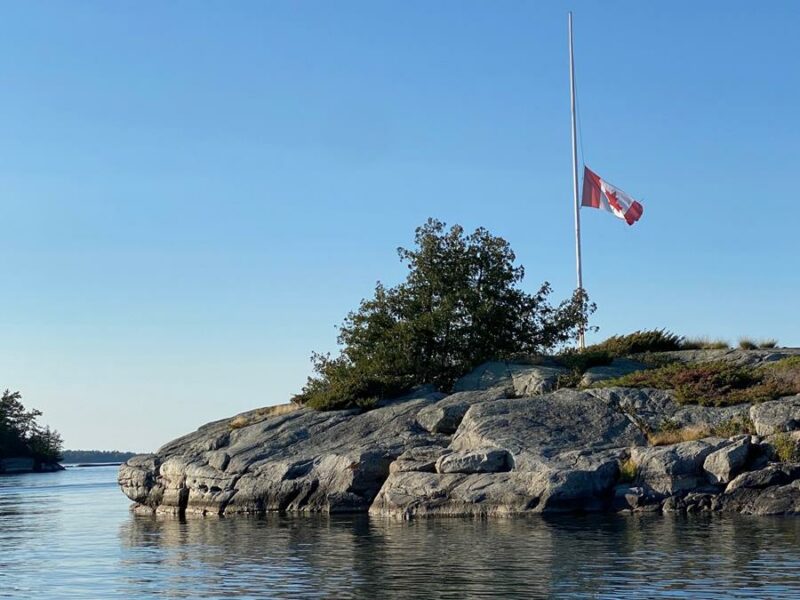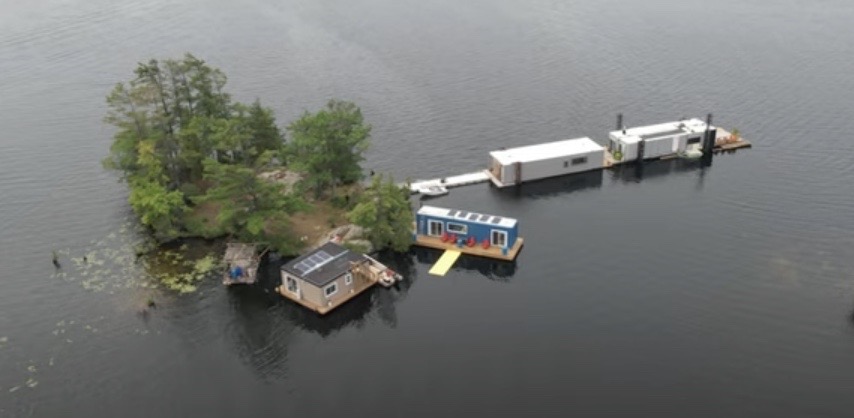BY JOHN LORINC, PUBLISHED IN COTTAGE LIFE: NOVEMBER 23, 2022
For the past several years, Deborah Martin-Downs, who served as the chief administrative officer of the Credit Valley Conservation Authority, has been working closely with the Township of Muskoka Lakes to update the environmental protections in its land use policies. “The township has official plans that put the environment first,” says Martin-Downs, who also served for two years as the president of the Muskoka Lakes Association. The township’s latest official plan explicitly cites goals such as maintaining a “high level of protection” for lakes and natural heritage features. “Other cottage municipalities, such as Haliburton and Kawartha Lakes, have done similar things, because without the environment, they will have nothing to offer people.”
So, in late October, when the Ontario government tabled a far-reaching omnibus bill that not only scrambled much of the province’s land-use planning rules, but also struck at the heart of environmental protections—for natural features such as wetlands, as well as the clout of conservation authorities by removing their ability to weigh in on the impact of development proposals within watersheds—Martin-Downs’ radar began to ping. “What I read in this act is a total disregard for the environment,” she said about a week after it was tabled in the Ontario legislature. (Ontario’s 36 conservation authorities, many of which were established in the aftermath of Hurricane Hazel in 1954, are mandated to protect floodplains and block development on hazardous or ecologically sensitive areas within a watershed.)
The legislation, formally known as Bill 23, or the “More Homes Built Faster Act,” ostensibly aims to remove bureaucratic roadblocks that have, according to the government, allowed a housing shortage in the more built-up parts of Ontario to reach crisis proportions. House and condo prices have gone through the roof. New home starts aren’t keeping up with demographics. Rents have also skyrocketed. In order to close the gap and bring down the costs of ownership, Premier Doug Ford has said he wants to build 1.5 million new homes in a decade—an unprecedented pace of development. To accomplish this, his government has introduced legislation that effectively strip-mines the planning approvals system, removing conditions that have long rankled developers, such as consultation processes, high development charges and other fees, and regulatory requirements viewed as obstacles to growth. The problem? The new rules, mainly aimed at Ontario’s urbanized southern region, could also have far-reaching ecological consequences. The changes could affect the agricultural band surrounding the Greater Golden Horseshoe, as well as more rural regions, including the lake and recreational districts whose health depends on a range of environmental protections, from watershed conservation to rules governing phosphate loads in lakes.
In particular, the new bill removes barriers to sprawl, significantly curtails the ability of conservation authorities to protect watersheds, and eliminates third-party appeals of development applications, such as those from cottager groups. Municipalities across the province will find their planning departments facing increased pressure from the building industry to process development applications. And, as Martin-Down points out, the municipalities in rural areas are simply not equipped to handle the volumes; many don’t even have a professional planner on staff.
Planners and conservation authority officials have been studying the proposed laws since they dropped, and many say that it will be months before they have a firm understanding of what’s been put forward and how it fits into other reforms that have been set in motion, such as allowing more development in the Greenbelt around the GTA. But most agree that the act’s main impact will be a downloading of services onto ill-equipped municipalities, the neutering of the conservation authorities, the removal of opportunities for individuals to raise concerns about developments, and an erosion of standards that protect source water and limit flooding.
“I think it puts more of a burden on the municipality,” says Anthony Usher, a planning consultant who has advised many cottage associations, owners, and developers. He adds that the Bill 23 changes, as well as other planning policy reforms coming out of Queen’s Park, place a far greater onus on landowners and community associations to monitor what’s happening with their municipal councils. “Every one of those changes underlines the importance of local political action.”
Under the proposed new rules, the conservation authorities will no longer be allowed to provide municipalities with feedback on development applications, as has been common practice for almost two decades. Instead, it will fall to municipal planning departments to monitor any environmental risks.
Some conservation authorities have provided that kind of analysis to municipalities on a fee-for-service basis, often paid by the developer, so the fiscal burden for carrying out these kinds of studies now shifts to local councils—and by extension, taxpayers—which often don’t have the staff or in-house expertise to do environmental impact assessments. Furthermore, the government is proposing changes to wetland classification, and some may no longer qualify as provincially significant ecological zones. Nonetheless, they remain important environmental areas that could now face development pressure, says Tim Lanthier, the chief administrative officer of the Grey Sauble Conservation Authority. “They’ve put things into the act that expand the powers of a minister to override any regulations through a zoning order, so the stage has been set,” he says, adding that he knows of several wetlands and habitat zones within Grey Sauble’s catchment area that could be endangered. “Certainly there are some wetlands that are in contentious development areas that could be at risk.”
Usher points out that for wetlands, which help prevent or mitigate flooding and erosion, that are not designated as provincially significant, “the conservation authorities currently have some leverage to try to protect or influence their protection.” He says that if the changes pass, it will be solely on the municipalities to decide whether or not a wetland should be protected. “The conservation authorities will have little input on the planning process—they’ll be told they have to basically stick to protecting floodplains and pointing out hazard lands, and that’s it.”
The proposed changes will also significantly diminish the role of conservation authorities in protecting communities from flooding, agrees Terry Rees, the executive director of the Federation of Ontario Cottage Associations (FOCA), which has been working in recent years with Ministry of Natural Resources and Forestry officials on an improved flood strategy. “We know from the insurance industry and the financial sector that we need to be much more diligent about where we allow people to build, and that includes keeping people away from natural hazards and watercourses,” he says. “Having less oversight and having more permissive building may lead us to having buildings and communities and infrastructure that are going to be at risk.”
Mark Majchrowski, the chief administrative officer for Kawartha Conservation, agrees. He points out that all this is happening at a time when cottage and rural districts, as well as conservation authorities themselves, have seen increased tourism. That dynamic will only increase with urban intensification.
“Green spaces are pretty important for development, and a lot of people flock to conservation area property,” he observes. “So conservation areas are an important element of our infrastructure as a whole.” Martin-Downs agrees: “If the pandemic told us anything, it is that people need a place to go for a walk.”
Another element of Bill 23 involves the suspension of third-party appeals and the elimination of the requirement to hold a public meeting—a move that seems aimed at restricting the ability of homeowner groups to slow development applications with appeals to the Ontario Land Tribunal. Under the proposed law, the OLT will no longer hear third-party appeals; if residents have concerns about a development, they’ll have to persuade the municipality to make an appeal on its own (which may not happen).
In lake areas, says Usher, very few applications make it to the appeal stage, and fewer make it to the OLT; most are approved by municipalities or resolved through negotiations between the parties. But by removing the right of appeal, he predicts that developers—both large and small—will have far less incentive to try to work out some kind of compromise with their neighbours.
Usher adds that there will be an indirect impact with the removal of the right to appeal, which raises the stakes for the municipal planners. “What does that mean for cottagers and for cottage associations that have lake plans and so on? Now, the municipal council is really the only decision-making point and the only check in the system.”
From her vantage point, Deborah Martin-Downs says that the new rules— which come hot on the heels of previous waves of planning reform laws promulgated by the Ford government—will merely make planning less predictable for residents, more costly for the municipalities, and riskier for the environment. “Confusion,” she says, “will reign for quite a while.”
John Lorinc writes about cities, climate, and clean technology. Follow cottagelife.com for updates on this story as it develops.









